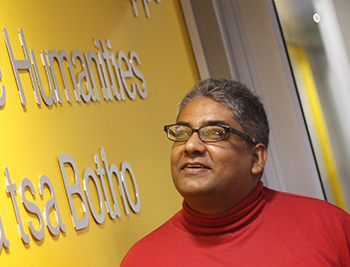
Prof Hussein Solomon, Senior Professor at the Department of Political Studies and Governance of University of the Free State (UFS), expects the Osaka University–UFS Conference to influence African policy makers.
Photo: Supplied |
Scholars and policymakers are expected to map out the political, economic, social, and educational trajectory at the Annual Osaka University–University of the Free State (UFS) Conference from 22 - 23 February 2016. The State of South Africa and Conflict Resolution in Africa are the themes of the two-day conference, hosted by the University of the Free State (UFS) on the Bloemfontein Campus.
The Osaka School of International Public Policy, Japan, and UFS Department of Political Studies and Governance have invited international academics, policymakers, and stakeholders in an attempt to reflect on a new path forward for the country and the continent.
Acknowledging problems to deal with them
According to Prof Hussein Solomon, Senior Professor in Political Studies at the UFS, “the idea is not only to map out the scale and gravity of the problems confronted, but also to arrive at policy-relevant conclusions. Both Prof Virgil Hawkins of Osaka University and I have briefed, and will continue to brief, African policy makers, so hopefully they could use this information within their own organisations,” he added.
Mapping the way forward
Papers will be presented by delegates from Osaka University, University of Pretoria, Eduardo Mondlane University in Mozambique, the Volksblad, the Free State Legislature, the Institute for Global Dialogue and Operations, Glacier by Sanlam, and the African Centre for the Constructive Resolution of Disputes.
Details of event
Date: 22 and 23 February 2016
Time: 08:45-16:15 and 09:00-14:30
Place: Albert Wessels Auditorium, Bloemfontein Campus
RSVP: Ms Marichen Preller at PrellerMI@ufs.ac.za for catering purposes.